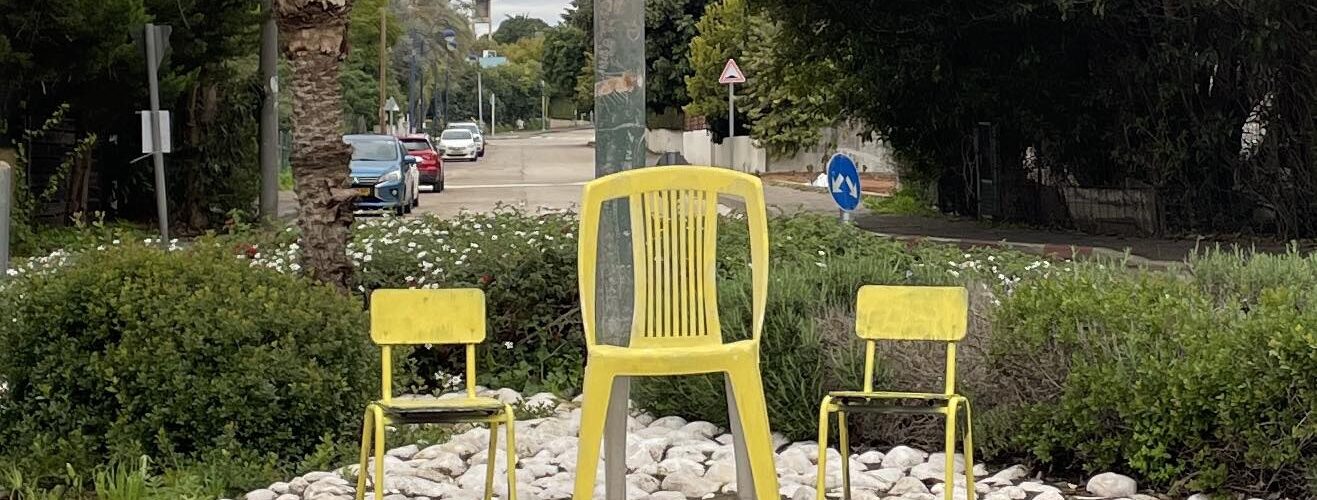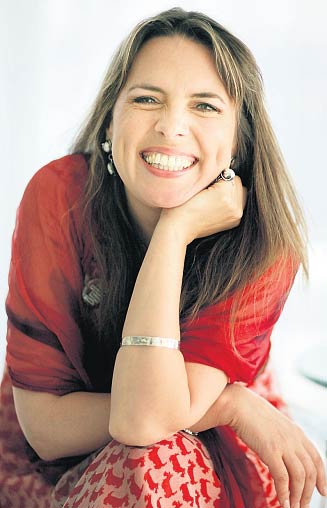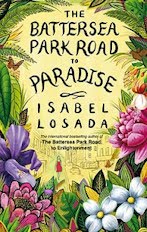You know your world is getting smaller when you can sit in front of your computer and have a cup of coffee with one of your favorite writers via Skype video chat. That’s what I did recently with Isabel Losada, the London-based author of “The Battersea Park Road to Enlightenment“, “For Tibet, with Love: A Beginner’s Guide to Changing the World“, “MEN!“, and the soon-to-be-released “The Battersea Park Road to Paradise“, among others. In each book, Isabel shares her true life adventures, taking readers along for the journey as she pursues interests that range from happiness to changing the world.
Introduced to Isabel’s books by a mutual Facebook friend nearly two years ago, I was intrigued – not only by the friend’s high praise for the books, but also by the quirky comments that Isabel would sometimes leave on his wall. I liked her style, and sensed that her books would set the tone I was looking for to become acquainted with ideas and concepts that interested me, but about which I knew very little. I chose to start with “The Battersea Park Road to Enlightenment, and by the end (actually, quite a bit earlier) I was hooked. I’ve since read two of her other books, pre-ordered the latest (due to be released in May 12th) and become friendly with Isabel on Facebook. I approached her several weeks ago about interviewing her for the blog, and she quickly agreed. What follows below is the result of that interview (the professional bits, anyway. I’ve left out the caterpillar…).
Writing for Her Readers
Isabel writes about subjects that hold particular interest for her, and the reward is that her readers are very loyal. She noted during our chat that people find it interesting that she genuinely cares about her readers; that she enjoys the friendships she has with them. Isabel is uniquely available as an author. It’s obvious that she enjoys talking to her readers, regularly interacting with them on Facebook through both her personal profile and her author page as well as on the readers’ own profiles. “Facebook allows me to check in with what other people are saying and have conversations,” she says. “I listen to my readers and I’m interested in what they think. With every sentence I write, I wonder how a reader will respond to it,” she adds.
Readers and friends run the gamut. Isabel has her Tibet friends, who are often Buddhists interested in Tibetan culture. Friends who connected with her after reading “MEN!” are another group, and those who came to her after reading “The Battersea Park Road to Enlightenment” tend to be from a third group. Some of these individuals have gone on to read all of her books, and many of her readers have “known” her for ten years. She’s sold approximately 100,000 books and currently has more than 1,000 fans on her author page.
The Perils of Writing Narrative Nonfiction
Isabel writes narrative nonfiction (also known as creative nonfiction), which, while being enormously popular in the US, is a more difficult sell in her native UK. “The thing about writing a book that’s genuine research is that you don’t always get the answer you want,” she points out. “In ‘MEN!’, I would have loved to say, ‘hey girls! I found the answer you want! They’re all in Liverpool!’ What I found instead, what readers discover by the end of the book are the reasons for the imbalance – but I don’t have a solution. If you’re true, it’s not always easy.”
Isabel explains that a nonfiction author can’t develop characters to meet the narrative needs. “I was meeting with an agent in New York who was interested in the romantic narratives of the new book,” she says. “The agent asked me, ‘so what about Viv?'” (Viv is a man Isabel is dating at one point in the book.) “I said, ‘well, it didn’t work out,’ and then she asked, ‘well what about Mooji? I thought I sensed a romantic possibility with the guru.'” Isabel smiles as she recalls her thoughts from the meeting. “I thought, ‘she wants me to date the guru??'”
Isabel notes that writing narrative non-fiction can sometimes hamper an author’s career. Take, for example, her book about Tibet. “The first part of the book is travel, the second part is social campaigning and the third part is about Buddhism. Where do you put it in the bookshop?” she asks. As a result, Isabel’s books are literally all over the bookshop, which is very bad for a writer.
“It would be easier for me to write with the pound signs in mind,” she admits. “I could just write books that would all go in the same area of the shop. Publishers want books that are easy to understand and fly off the shelf quickly.” She adds, somewhat wryly, “You could argue that if you’re going to write a book that’s an exploration of a spiritual area, that you then need to give it a nice, happy, Hollywood ending in order for it to sell. Then, if six million more people read it, maybe the ends justify the means – but I can’t do it.”
From the Battersea Park Road to Tibet and Back
In “The Battersea Park Road to Enlightenment”, Isabel explores different “paths” to happiness.”I’d been in a difficult stage of my life and as such, was interested in exploring all these crazy, wonderful ideas – most of which seem to come from California,” she says with a laugh. Among the ideas that Isabel investigates are human potential seminars, spiritual retreats, “past life workshops”, T’ai Chi and tantra. She gets hypnotized, rolfed, massaged and rebirthed, manifests her inner goddess, gets angry and undergoes colonic irrigation. As Isabel puts it, “I wanted to see what I could learn – about things I believed in and didn’t believe in.”
The book is primarily to entertain the reader and make them laugh, but also sneaks in all the best tips about what she learns. Critics accused it of being self-indulgent and navel-gazing – a criticism that Isabel agrees with. “It’s hard to write a book about personal happiness without looking inwards,” she admits. So, in her second book, “For Tibet with Love: A Beginner’s Guide to Changing the World”, Isabel conducts an experiment to see if one individual can make a difference. “It’s about taking a year out to support a cause that you believe in,” explains Isabel. “The idea is to take on something huge and try to effect change.” This inspirational book, about supporting His Holiness the Dalai Lama and the people of Tibet in their ‘relationship’ with the Chinese, is Isabel’s personal favorite.
In “MEN!”, she explores the internationally recognized phenomenon of the lack of available single men and the abundance of often highly intelligent, gifted and beautiful single women. It’s a topic that causes profound sadness in a number of Isabel’s girlfriends. “In London, I have many, many single women friends and very few men to introduce them to, so I decided to explore this. I wanted to see if I could find out where the men are hiding,” she says. Isabel spends time in a variety of male environments – building sites, a Harley-Davidson club, singles events, lectures and other male environments. By the end of the book Isabel is able to explain the reasons for the imbalance – but sadly has no magic solution. She ends the book with an appeal for honesty and quality in relationships.
Isabel’s newest book, “The Battersea Park Road to Paradise”, is being released on May 12th, and aims to look deeper than her previous books. “I’d been having a difficult year, where everything personally and professionally had gone wrong,” she describes. “I’d lost love and I’d lost my dream job opportunity and wanted to start again. I felt like I needed a life overhaul.”
Isabel uses the ancient Chinese elements of metal, fire, wood, water and earth to pare life down to the basics. She examines fewer topics and chooses to make sections longer, allowing for greater examination of her selected topics. Using the elements as a guide, she explores five different ways of overhauling one’s life and how these methods lend themselves to transformation – even though the shift may be subtle. She delves into the issues of how what we have around us may influence us; having goals and moving towards them; who we are if we aren’t our bodies, thoughts, emotions or memories; and exploration of consciousness. Isabel meets with Feng Shui experts (and draws the conclusion that while there is some value in it, some of it is nonsense), attends an Anthony Robbins seminar, does Vipassana meditation for ten straight days (after being challenged to sit still – “it was agony”) and encounters a guru. She also spends time in the Amazon jungle with the Asháninka tribe, where she meets a shaman and takes what would be classified as “either ‘sacred medicine’ or a ‘Class A hallucinogenic drug’, depending on your point of view”.
“I was encouraged to swallow the ‘medicine'”, laughs Isabel. “Many people find the experience terrifying, because you suddenly become very aware of the fact that you are not your mind. You become a witness to what your mind is doing,” she says. Isabel adds that insights gained from Mooji (the aforementioned guru) assisted her in being able to simply observe the hallucinations without identifying with them. “The tribe believes that the things you see while under the influence of the drug are either the spirits of the forest or your ancestors,” she explains. But Isabel believed, due to her time spent with Tibetan Buddhists, that her own mind was the exclusive source of everything she saw. For that reason, she didn’t believe there was anything to be frightened of – apart from possibly dying as a result of taking the drug. “It’s a poison. It made me so sick,” she says with another laugh.
“The new book is about having a relationship with ourselves and how that impacts on others. And about kindness,” summarizes Isabel. “As well as including the usual doses of humor, I hope it will make my readers think a little – but still, primarily, make readers smile.”
On Writing and Publishing
When asked where she writes, Isabel picks up her laptop and provides me with a slow scan of the sunlit room in which she’s sitting (as well as a quick view of her green front door – because, according to Feng Shui, an entrance to a home is very important and should be bright and cheerful). When on the road, she keeps a pen and notebook handy to record her thoughts. “Writing is the easy part for me – I love to write,” confides Isabel.
I asked her if she had any advice for writers, and she responded with a few wise words from George Orwell. “‘Clarity. Brevity. Precision.’ And punctuation also helps,” she adds with a laugh. As for getting published, Isabel insists that persistence pays. “You need rejection letters. If you don’t have some, you’re not really trying,” she says.” In my ‘How to get published’ talk, I ask members of the audience to raise their hands if they have rejection letters, and then I ask everyone else give those brave souls a round of applause,” she says. You have to have rejection letters if you want to get published.”
*****
For more information about Isabel Losada and her books, please visit the following sites:



now, about those caterpillars…;-)
Can’t wait for the new book!